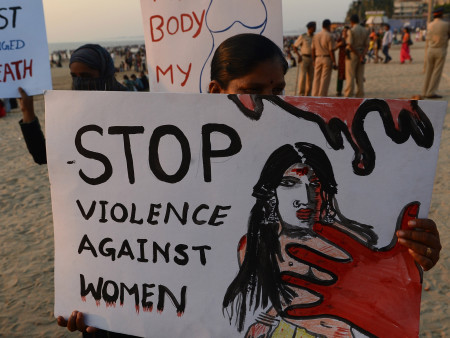A 20-year-old man is under arrest in India following the brutal rape and attempted murder of a 15-year-old girl at her home.
The teenager was found by her parents, who heard her screaming from the roof terrace of their home a few hours before dawn on Monday. She was found with burns over most of her body, having been set alight by her assailant, who the girl said had been stalking her for months. She remains in a critical condition in a Delhi hospital.
Bisrakh Police constable Yadram Singh told the press a 20-year-old man “with burns on his hands” had been arrested and charged with several offences, including rape, attempted murder, assault of a minor and causing grievous injury.
India’s women and children are considered particularly vulnerable to sexual violence and harassment because of widespread social taboos against speaking about sexual assault. The stigma is enough to keep many from even reporting crimes, while others face police resistance in filing complaints.
Monday’s attack – one of several recent cases of rape and violence against women or children in India – further underlines the persistence of such violence despite a public outcry three years ago that led to stronger laws to prevent sexual assault.
In December 2012, Jyoti Singh, a 23-year-old medical student was raped, beaten and tortured by six men on a Delhi bus. Singh, who was violated with an iron bar during the assault and thrown from the moving bus, died two weeks later.
The brutality of the attack prompted fierce criticism of the police, rows in parliament and protests in which tens of thousands of people took to the streets. The government responded by rushing through legislation to double prison terms for rape, and by criminalising voyeurism, stalking and the trafficking of women.
However, India’s attitude to sexual violence came under renewed scrutiny in May 2014 when two teenage female cousins were raped, murdered and hanged from a mango tree in a small village in Uttar Pradesh.
Campaigners argue more action is needed, including better education for young people and the provision of basic safety infrastructure such as street lights and public bathrooms.
Meenakshi Ganguly, south Asia director of Human Rights Watch, said that bringing in laws was just one step towards tackling a far wider problem.
“The Indian government still needs to do much more to ensure better protections as well as stronger enforcement,” she said, adding: “Politicians have unfortunately focused on issues such as the death penalty for convicted offenders or amending the juvenile justice laws, which are populist gestures. The much harder work is to create a responsive system to assist survivors, a trained police force that will be trusted to respond promptly to threats.”
Indian newspapers have carried several reports of rapes and assaults over the past few days. On Monday, police in the financial capital of Mumbai said they were investigating whether a four-year-old girl whose body was dumped in bushes on the city’s outskirts had been raped before being killed, according to the Press Trust of India (PTI) news agency. The girl reportedly went missing after being separated from her mother at a railway station on Sunday night.
In another case, police arrested a 20-year-old man suspected of raping a six-year-old in Uttar Pradesh on Sunday night, while separately they were investigating nine people for allegedly raping a woman when she went into the fields to go to the toilet last month.
And last week, three boys reportedly kidnapped a teenage girl from her home and raped her repeatedly in a field in the northern state of Haryana and later in Delhi before she escaped, according to the news agency.










